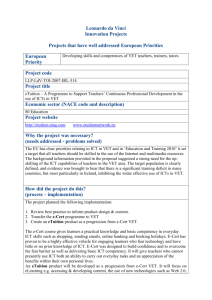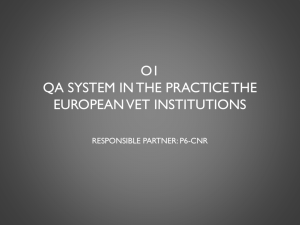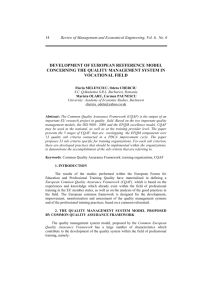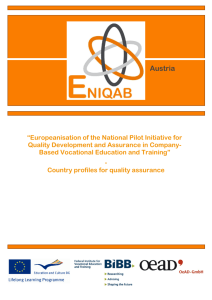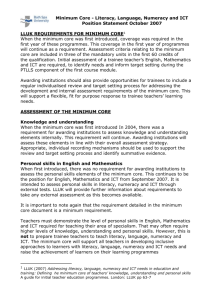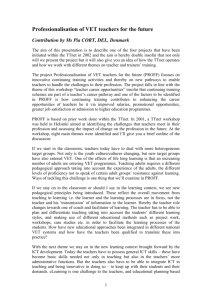Quality Assurance of EU Keys Skills in NL: IPON Conference in Utrecht
advertisement
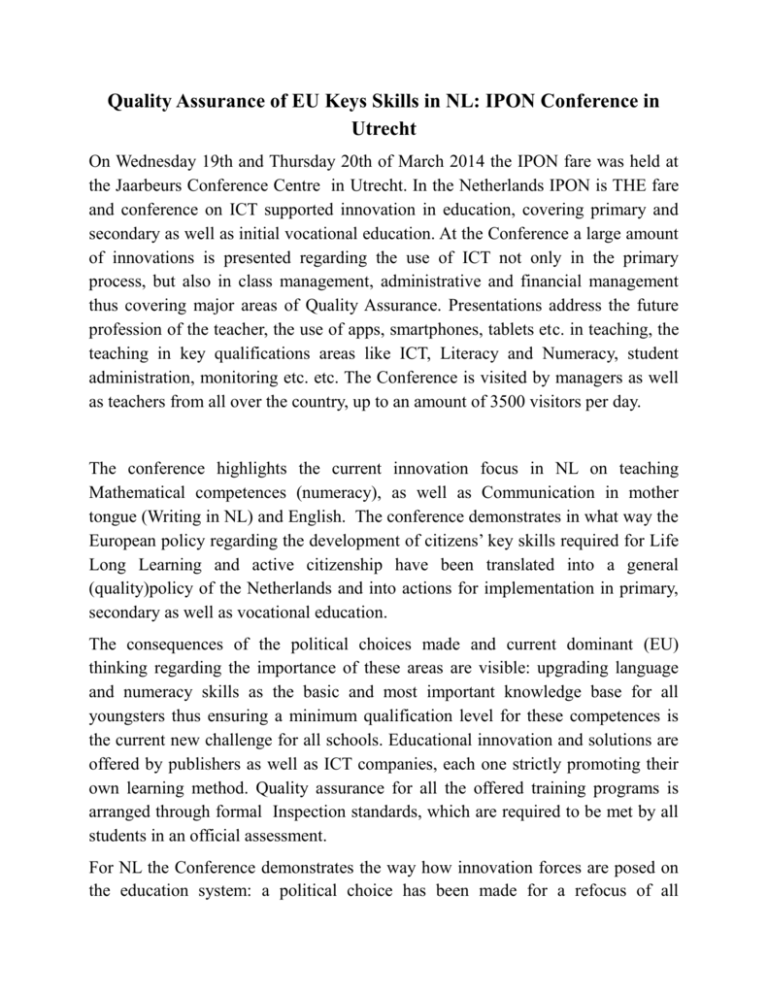
Quality Assurance of EU Keys Skills in NL: IPON Conference in Utrecht On Wednesday 19th and Thursday 20th of March 2014 the IPON fare was held at the Jaarbeurs Conference Centre in Utrecht. In the Netherlands IPON is THE fare and conference on ICT supported innovation in education, covering primary and secondary as well as initial vocational education. At the Conference a large amount of innovations is presented regarding the use of ICT not only in the primary process, but also in class management, administrative and financial management thus covering major areas of Quality Assurance. Presentations address the future profession of the teacher, the use of apps, smartphones, tablets etc. in teaching, the teaching in key qualifications areas like ICT, Literacy and Numeracy, student administration, monitoring etc. etc. The Conference is visited by managers as well as teachers from all over the country, up to an amount of 3500 visitors per day. The conference highlights the current innovation focus in NL on teaching Mathematical competences (numeracy), as well as Communication in mother tongue (Writing in NL) and English. The conference demonstrates in what way the European policy regarding the development of citizens’ key skills required for Life Long Learning and active citizenship have been translated into a general (quality)policy of the Netherlands and into actions for implementation in primary, secondary as well as vocational education. The consequences of the political choices made and current dominant (EU) thinking regarding the importance of these areas are visible: upgrading language and numeracy skills as the basic and most important knowledge base for all youngsters thus ensuring a minimum qualification level for these competences is the current new challenge for all schools. Educational innovation and solutions are offered by publishers as well as ICT companies, each one strictly promoting their own learning method. Quality assurance for all the offered training programs is arranged through formal Inspection standards, which are required to be met by all students in an official assessment. For NL the Conference demonstrates the way how innovation forces are posed on the education system: a political choice has been made for a refocus of all education, the Inspection translates this choice into new sets of criteria, and the educational institutes are required to meet the new criteria and adjust their programs accordingly. The Conference promotes the supportive tools to do this. The shadow side of this type of national led innovation is that again education does not feel owner of the required changes. New publication: "Adaptation of European model of quality in education “CQAF” for VET sphere" (Russia) "Adaptation of European model of quality in education “CQAF” for VET sphere" article was published in magazine "VET in the country and the world" magazine (2014, № 1). Short excerpt: “… The first stage of the QinVET project showed that the quality issues exist on their own, independently from teachers’ work. More than 80% of teachers and 88% of VET departments’ administration of universities surveyed, think that quality initiatives come to the educational institutions from outside of the organization. They are not motivated by inner tasks or quality needs. It can be seen in the results of several focus groups researches, conducted in a number of Russian regions. These researches confirmed the results of QinVET first stage surveys. This at least means that until quality is not considered by all the participants of educational process, it doesn’t make sense to talk about it after all…” The author of the article is the director of the Institute of Distance Education of the National Research Tomsk State University, Dr. Galina Mozhaeva.






